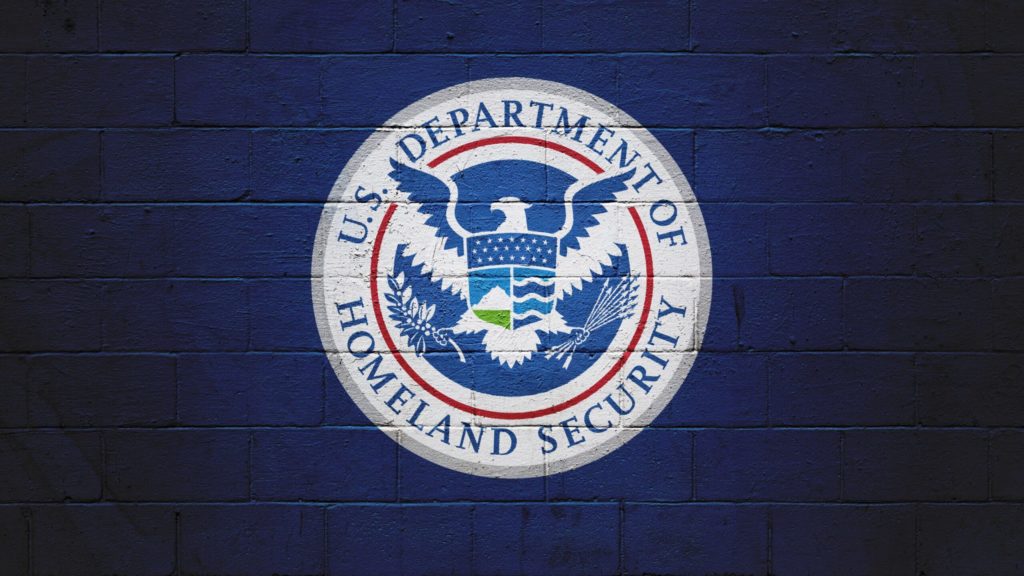Originally Authored at TheFederalist.com

An appropriations bill passed by the House and awaiting approval in the Senate will supposedly inhibit the Cybersecurity Infrastructure Security Agency (CISA) from engaging in censorship, but a homeland security expert is not convinced.
CISA, a component of the Department of Homeland Security, is described as the “nerve center” of federal government censorship. It is responsible for facilitating collusion between federal agencies and social media companies, interfering in our elections, and censoring Americans who spread anything the agency deems “dis” and “misinformation.”
CISA also censors “malinformation,” which the agency defines as information “based on fact, but used out of context to mislead, harm, or manipulate.” CISA justifies censoring information it knows is true because it believes, as current CISA Director Jen Easterly said, that it is its job to secure the public’s “cognitive infrastructure.” In other words, CISA wants to control our minds.
Early this month, the 5th Circuit Court of Appeals ruled in the Missouri v. Biden that CISA is barred from continuing to violate the Constitution, but, according to experts, the only sure way to stop CISA from illegally censoring Americans is to defund the agency.
‘Poorly’ Drafted Legislation
Instead of defunding CISA, members of Congress added provisions within their Department of Homeland Security appropriations bill to allegedly put an end to the agency’s illegal activity.
According to the bill, none of the DHS funds can be used “to classify or facilitate the classification of any communications by a United States person as mis-, dis-, or mal-information,” nor can the funds be used to “partner with or fund nonprofit or other organizations that in any way instruct, influence, direct, or recommend that private companies in any way censor, prohibit, or obstruct lawful and constitutionally protected speech of United States persons on social media platforms.”
Cato Institute Senior Fellow Patrick Eddington, who is an expert on homeland security and civil liberties, wrote in a statement to The Federalist that this part of the bill is “the most poorly/sloppily drafted pieces of legislation I’ve seen in my 35 years in D.C.” The first issue, Eddington says, is that “There’s no definition of what constitutes ‘misinformation’ or ‘disinformation’ or ‘malinformation,’” leaving “the entire section wide open to attack in federal court.”
Eddington foresees issues with another section of the bill, where the lawmakers state, “Any officer or employee of the federal government whose salary is funded by this Act and who conducts” the illegal censorship activity, “shall be removed from the Federal service.” According to Eddington, this would be “a flagrant violation of the separation of powers and also, as drafted, is a de facto bill of attainder—both unconstitutional.” A bill of attainder is a law that legislates consequences without going through the standard legal process, and it is, as Eddington said, unconstitutional.
How To Handle CISA
Brian Cavanaugh, a visiting fellow at Heritage and a former member of President Trump’s National Security Council, told The Federalist that he doesn’t think CISA should be abolished because it plays an important part in the security apparatus. “CISA has a very important role,” said Cavanaugh, particularly because we are at a “precarious point in time with quantum computing and AI capabilities.” Enemies of America, for instance, have “the capability to turn off all the lights in the U.S.,” he said.
To fix the abuses prevalent across the entire Department of Homeland Security, Cavanaugh told The Federalist that DHS needs to “consolidate its mission” and diminish the size of “bureaucratic middle management.” The best way to accomplish this would be “to have the next Republican president ask Congress for presidential reorganization authority for DHS,” he stated.
“What needs to be done is somebody needs to sit back and say, ‘What are the fundamental things we need to do to protect the homeland that are inherently government-oriented responsibilities?’” said Cavanaugh. “‘And how do we focus our efforts and get rid of the fluff and the waste and abuse?’”
In the meantime, however, Congress can make headway by cutting CISA’s funding. “CISA has been given more money than they know what to do with,” Cavanaugh said. “Up until this past year, they have gotten what they’ve asked for, if not more, than what they’ve asked for.” Cutting CISA’s funding would incentivize the agency to “laser focus on their actual mission and use the funding they’ve received to demonstrate that they’re moving the needle on the areas that they’ve actually been authorized to execute by Congress,” explained Cavanaugh.
Congressional Republicans Must Cut Funding
Two weeks ago, Rep. Andrew Clyde (R-Ga.) introduced an amendment that would strip CISA of 25 percent of its funding. Unfortunately, 109 Republicans voted against the amendment, and it failed on the House floor.
In a statement to The Federalist, Clyde said that he is “hopeful that many of my colleagues will reconsider” their decision to vote against cutting CISA funding “and join with me in holding this weaponized agency accountable through the power of the purse following new information that has come to light regarding its nefarious censorship practices.”
“Considering that CISA has shamelessly violated Americans’ First Amendment freedoms for years, it is incumbent upon Congress to take additional steps to eliminate this taxpayer-funded government-by-proxy censorship from further tarnishing our nation,” Clyde continued.
Clyde told The Federalist that there is still another opportunity for Congress to cut CISA funding and protect the American people and the integrity of the upcoming 2024 election. For now, however, it remains to be seen whether Congressional Republicans will use that opportunity to uphold the oath they took upon entering office to defend the Constitution.
Evita Duffy-Alfonso is a staff writer to The Federalist and the co-founder of the Chicago Thinker. She loves the Midwest, lumberjack sports, writing, and her family. Follow her on Twitter at @evitaduffy_1 or contact her at evita@thefederalist.com.
